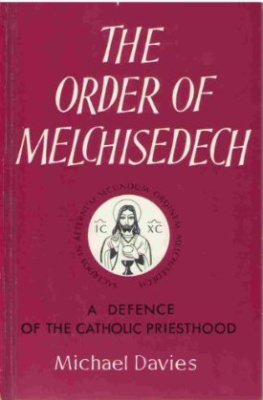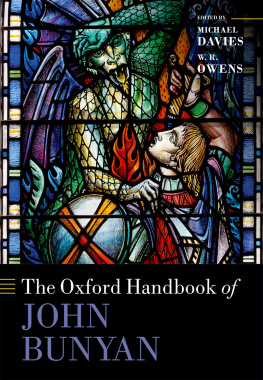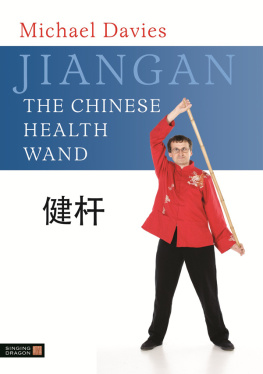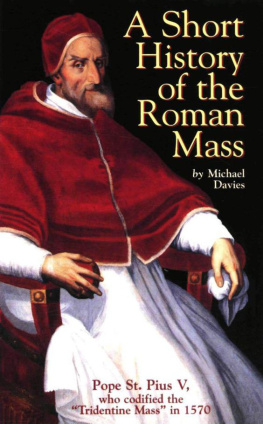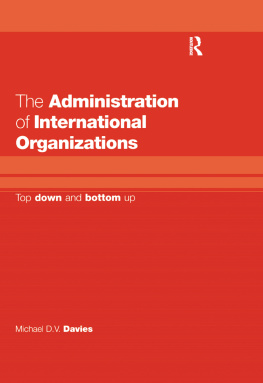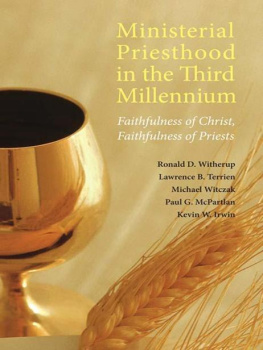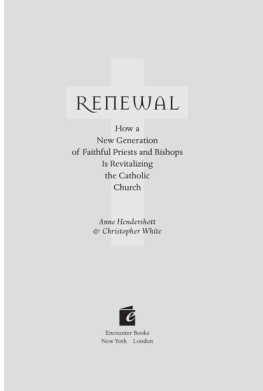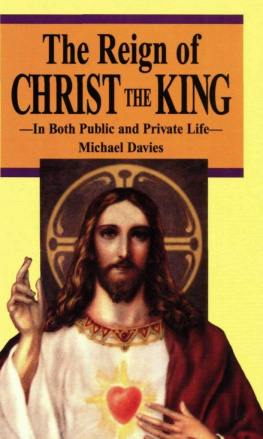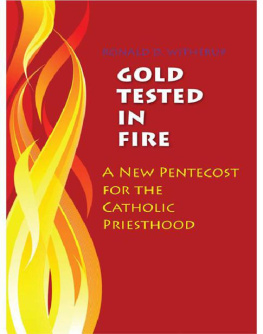Michael Davies - The Order of Melchisedech: A Defence of the Catholic Priesthood, 2E
Here you can read online Michael Davies - The Order of Melchisedech: A Defence of the Catholic Priesthood, 2E full text of the book (entire story) in english for free. Download pdf and epub, get meaning, cover and reviews about this ebook. year: 1993, publisher: Roman Catholic Books, genre: Religion. Description of the work, (preface) as well as reviews are available. Best literature library LitArk.com created for fans of good reading and offers a wide selection of genres:
Romance novel
Science fiction
Adventure
Detective
Science
History
Home and family
Prose
Art
Politics
Computer
Non-fiction
Religion
Business
Children
Humor
Choose a favorite category and find really read worthwhile books. Enjoy immersion in the world of imagination, feel the emotions of the characters or learn something new for yourself, make an fascinating discovery.
- Book:The Order of Melchisedech: A Defence of the Catholic Priesthood, 2E
- Author:
- Publisher:Roman Catholic Books
- Genre:
- Year:1993
- Rating:3 / 5
- Favourites:Add to favourites
- Your mark:
- 60
- 1
- 2
- 3
- 4
- 5
The Order of Melchisedech: A Defence of the Catholic Priesthood, 2E: summary, description and annotation
We offer to read an annotation, description, summary or preface (depends on what the author of the book "The Order of Melchisedech: A Defence of the Catholic Priesthood, 2E" wrote himself). If you haven't found the necessary information about the book — write in the comments, we will try to find it.
The Order of Melchisedech: A Defence of the Catholic Priesthood, 2E — read online for free the complete book (whole text) full work
Below is the text of the book, divided by pages. System saving the place of the last page read, allows you to conveniently read the book "The Order of Melchisedech: A Defence of the Catholic Priesthood, 2E" online for free, without having to search again every time where you left off. Put a bookmark, and you can go to the page where you finished reading at any time.
Font size:
Interval:
Bookmark:
The Substance of a Sacrament
The Catechism of the Council of Trent , following St. Augustine and St. Thomas, emphasizes the nature of the seven Sacraments sacred signs, but signs which possess by Divine institution the power to effect what they signify. In order to bring the Sacrament to completion a third element is necessary, the minister of the Sacrament, who effects it with the intention of doing what the Church does. All three things are essential, "and, if anyone of these three is lacking, the Sacrament is not effected" (D. 695).
The Council of Trent declares that the Church has always possessed the power-----in the dispensation or administration of the Sacraments-----to determine or to change those things which she judges to be more expedient for those receiving them or for the reverence due to the Sacraments themselves, according to the circumstances of time and place. An exception is made with regard to the substance of a Sacrament which the Church has no power to alter----- salva illorum substantia: provided their substance is retained (D. 93 1).
The question immediately arises as to what belongs to the substance of a particular Sacrament, and the answer will depend upon whether Our Lord instituted it generically ( in genere ) or specifically ( in specie ). In the former case, He left it to the supreme authority of His Church to decide the particular signs which should signify and effect the sacramental grace. Where Christ instituted a Sacrament in specie , as regards either matter or form, the Church has no power to change them. Our Lord chose water for the matter of Baptism and bread and wine for the matter of the Holy Eucharist; nothing else can ever be admitted. But even here the Church enjoys a certain latitude in fixing the precise nature of the matter. Where bread for the Holy Eucharist is concerned, priests of the Latin rite are bound to use unleavened bread-----just as Our Lord did at the Last Supper. But there are other rites, Uniate and Orthodox, in which leavened bread is used-----and the Church recognizes this as equally valid. The Pope possesses the legal power to impose the use of unleavened bread upon the Eastern rites or of leavened bread upon the Latin Church-----but until the reforms of Vatican II it had always been the Catholic custom to hold fast to the traditions which have been handed down, liturgical traditions in particular, and never to change them even in minor matters without a compelling reason for doing so.
With regard to the form of a Sacrament, some Catholics have mistakenly identified the form itself with a particular formula employed by the Church to express it, and have concluded that this formula cannot be changed without invalidating the Sacrament. Hence they have fallen into the error of believing that the Church has no power to make changes in the matter and form of any Sacrament, having mistakenly identified the matter and form in current usage with the substance of the Sacraments themselves, which Trent taught could not be changed.
The view that the Church can make no change in the matter and form of any Sacrament is historically indefensible. "The custom of the Church in different ages and countries shows that the form is not fixed in its particular words."
The Sacrament of Order provides a clear example of the Church revising her teaching on what constitutes the matter and form of a particular Sacrament. The Decree to the Armenians states:
The matter, in this case, is the act of handing over, or "tradition" ( traditio ), of the instruments. The imposition of hands by the ordaining bishop had been the matter of the Sacrament in Apostolic times, and this practice has been retained as the sole matter down to the present-day by all the Eastern rites, with the exception of the Armenians. The Latin rite itself did not possess the ceremony of the "tradition" until the tenth century, and until that time the imposition of hands constituted the matter in the Western as well as the Eastern Church.
But from that time the ordination rites in the Latin Church were expanded and developed by the addition of other significant ceremonies, which both enhanced the solemnity of the occasion and also brought out the sacramental symbolism more clearly.
The ceremony of the "tradition" consisted of the handing over to the candidate of those things used in the exercise of the Order in question, namely the chalice containing wine and the paten with bread for the Priesthood, and the book of the Gospels for the Diaconate, together with a form of words signifying the power conferred by ordination. By the thirteenth century the "tradition" of the instruments had been universally adopted throughout the Latin Church, so much so that the scholastics began to teach that this tradition of the instruments, with the respective form of words, belonged to the sacramental matter and form. This was indeed the opinion of St. Thomas Aquinas; Pope Eugenius IV cited his very words in instructing the Armenians (D. 701).
It is not necessary to study in detail the long and complex theological disputes which took place on this question. The obvious problem was that, if the "tradition" of the instruments was necessary for validity, what of all the ordinations which had taken place in the centuries prior to its introduction and of those in the Eastern rites where there was no "tradition"? Pope Pius XII settled the matter in his constitution Sacramentum Ordinis of 30 November 1947 (D. 2301). He decreed that the sole matter of the Sacrament is the imposition of hands and the sole form consists of the words of the Preface of the rite, the essential words being:
Pope Pius XII thus taught conclusively that the tradition of the instruments is not necessary for validity, but he did not pronounce on whether it had been necessary for validity within the Latin rites up to the promulgation of Sacramentum Ordinis . He contented himself with observing that "if at any time the delivery of the instruments has, by the will and enactment of the Church, been necessary even for validity, everybody knows that what the Church has once ordained she can change and abrogate." This final comment refers, of course, to those aspects of the administration of the Sacraments over which the Church does have power, and not to the substance of the Sacraments, which can never be changed.
Pope Pius XII made no change in the rite of ordination itself, in which the tradition of instruments was retained. In this respect it is worth noting that the essential form as laid down by the Pope simply states that the candidate has been admitted to the dignity of the Priesthood. It does not state in specific terms ( expressis verbis ) what powers have been conferred upon the priest, just as the essential form in other Sacraments does not always state their specific effects. For example, the form of Baptism does not state specifically that the candidate has been cleansed from the stain of Original Sin. However, the powers conferred upon a priest and the effects of Baptism are signified specifically in other parts of the traditional rites. Thus the form itself can derive its signification from other parts of the rite into which it is incorporated. Pope Leo XIII explained that the Anglican Ordinal did contain certain words which might conceivably "be held to suffice in a Catholic rite which the Church had approved."
Font size:
Interval:
Bookmark:
Similar books «The Order of Melchisedech: A Defence of the Catholic Priesthood, 2E»
Look at similar books to The Order of Melchisedech: A Defence of the Catholic Priesthood, 2E. We have selected literature similar in name and meaning in the hope of providing readers with more options to find new, interesting, not yet read works.
Discussion, reviews of the book The Order of Melchisedech: A Defence of the Catholic Priesthood, 2E and just readers' own opinions. Leave your comments, write what you think about the work, its meaning or the main characters. Specify what exactly you liked and what you didn't like, and why you think so.

